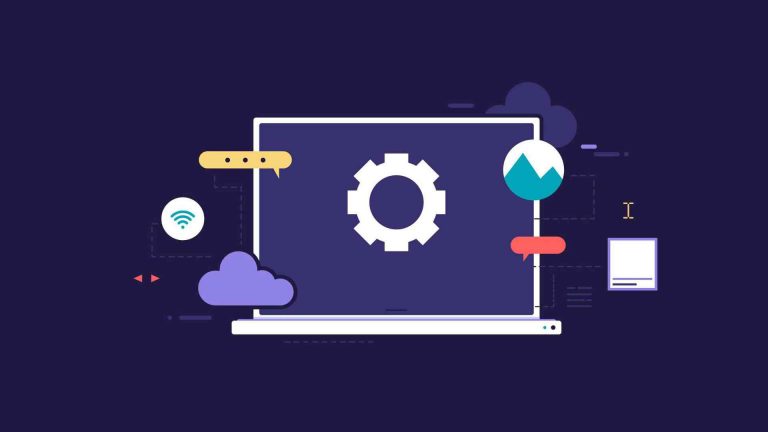Telecommunications
Cisco ISE (Identity Services Engine) is a network access control and policy enforcement platform that allows organizations to ensure secure access to network resources. It provides centralized control and visibility to enforce policies across the entire network infrastructure. Cisco ISE is designed to simplify the delivery of consistent, highly secure access control across wired, wireless, and VPN connections. The Cisco ISE course is beneficial for network administrators, security professionals, and anyone interested in implementing secure access control policies in their organization. The course provides hands-on experience with the latest network access control and policy enforcement technologies from Cisco and it can be taken online to provide flexibility and convenience to students.
The CompTIA Network+ course is a certification program that provides foundational knowledge and skills for network technicians and IT professionals. The course covers a wide range of topics related to networking, including network architecture, network operations, network security, network troubleshooting, and industry standards and protocols. The participants will learn how to design and implement network infrastructure, configure and maintain network devices, troubleshoot common network issues, and implement network security protocols. They will also gain an understanding of various networking technologies, including wired and wireless networks, network topologies, and network protocols. The course is designed for individuals who are interested in pursuing a career in network administration, network support, or other networking-related roles. The course is also beneficial for individuals who are already working in these roles but need to update their skills and knowledge to keep up with the changing technology landscape. Upon completion of the course, participants will be able to take the CompTIA Network+ certification exam. The certification is widely recognized in the IT industry and demonstrates a high level of competency and expertise in network administration and support.
The Configuration Management Tools Training is a focused 3–4 day program designed to help IT professionals and system administrators streamline infrastructure automation using industry-standard tools like Ansible, Puppet, and Chef. This hands-on course teaches you how to manage server configurations, automate repetitive tasks, and deploy systems consistently and efficiently across environments. Whether you're looking to eliminate manual errors, improve scalability, or gain control over complex systems, this course equips you with the practical skills to automate infrastructure management confidently.
This 3–4 day immersive training program covers Docker and Kubernetes, the leading technologies for containerization and container orchestration. Participants will gain hands-on experience in creating, managing, and deploying containerized applications using Docker, and scaling and orchestrating those containers with Kubernetes. The course covers essential topics like container security, deployment strategies, networking, and monitoring, giving participants the skills needed to manage modern microservices-based applications. This course is designed for IT professionals looking to enhance their containerization and orchestration skills for cloud-native environments.
GPON (Gigabit-capable Passive Optical Network) is a popular fiber optic technology used in telecommunications to provide high-speed internet, voice, and video services to customers. A course in GPON covers the technology, architecture, and configuration of GPON networks, as well as the hardware and software components involved in their deployment and management. A course in GPON is essential for professionals working in the telecommunications industry, including network engineers, network administrators, and network security professionals. By completing the course, students will gain the skills and knowledge necessary to design, deploy, and manage GPON networks, making them valuable assets to any organization that relies on this technology. Additionally, the course can help students prepare for certification exams, such as the Fiber Optic Association Certified GPON Specialist exam, which can further enhance their career prospects in the field.
The HPE Aruba course is designed to provide students with a comprehensive understanding of the Aruba networking technology and how to use it to build and manage enterprise-grade networks. The HPE Aruba course provides students with a comprehensive understanding of the networking technology and practical skills for working with it. HPE Aruba’s solutions are designed to help organizations build secure, high-performance network infrastructure that can adapt to changing business needs. Aruba’s solutions are used by a wide range of organizations, including healthcare providers, educational institutions, and financial services companies. By completing the course, students will be prepared to work with Aruba networking technology in a variety of roles, including as network engineers, system administrators, and IT managers.
The IBM LDAP & WebSeal course is designed to provide students with the knowledge and skills required to manage user identities and access control within an enterprise environment. LDAP (Lightweight Directory Access Protocol) is a widely used protocol for accessing and managing user and system data, while IBM WebSeal is a web access management solution that provides secure access to web-based applications and resources. In this course, students will learn how to configure and administer LDAP and WebSeal, as well as how to integrate these technologies with other enterprise systems. The course covers topics such as directory architecture, LDAP schema design, authentication and authorization, and integration with Single Sign-On (SSO) solutions.
The Juniper Firewall course is designed to provide students with a comprehensive understanding of Juniper’s firewall technology and how to deploy and manage it in an enterprise environment. The Juniper Firewall course provides students with a comprehensive understanding of Juniper’s firewall technology and practical skills for working with it. Juniper Firewall courses provide comprehensive training on various aspects of designing, configuring, and managing Juniper Firewall solutions. By completing the course, students will be prepared to work with Juniper firewalls in a variety of roles, including as network engineers, security engineers, and IT managers.
Juniper IJOS (Juniper Internet Operating System) is a comprehensive course designed for network engineers and administrators who want to gain expertise in configuring, deploying and maintaining Juniper routers and switches. The course focuses on the Junos operating system, which is used in Juniper’s networking devices. The course is suitable for both experienced networking professionals and those new to the field. The course covers a wide range of topics, including basic routing concepts, routing policies, routing protocols, MPLS (Multiprotocol Label Switching), OSPF (Open Shortest Path First), BGP (Border Gateway Protocol), and more. Students will also learn how to configure and manage Juniper routers and switches, including understanding the CLI (Command Line Interface), configuring interfaces, and VLANs (Virtual Local Area Networks).
The Kafka Elastic program is a focused, 16–20 hour training designed to equip professionals with end-to-end knowledge of real-time data streaming using Apache Kafka and its seamless integration with Elasticsearch. Through a combination of instructor-led sessions, hands-on labs, and guided use cases, learners will gain practical experience in building scalable data pipelines, managing stream processing, and enabling powerful analytics and monitoring. The course starts with Kafka fundamentals, covering key concepts such as producers, consumers, brokers, topics, partitions, and message delivery guarantees. From there, learners explore real-time streaming workflows and how to architect them for high availability and fault tolerance. The second half of the course focuses on Elasticsearch integration—how to index Kafka data, create dashboards, monitor system performance, and support enterprise-grade analytics. Ideal for engineers, data teams, and IT professionals, this course empowers participants to drive real-time decision-making in their organizations.
No posts found






















